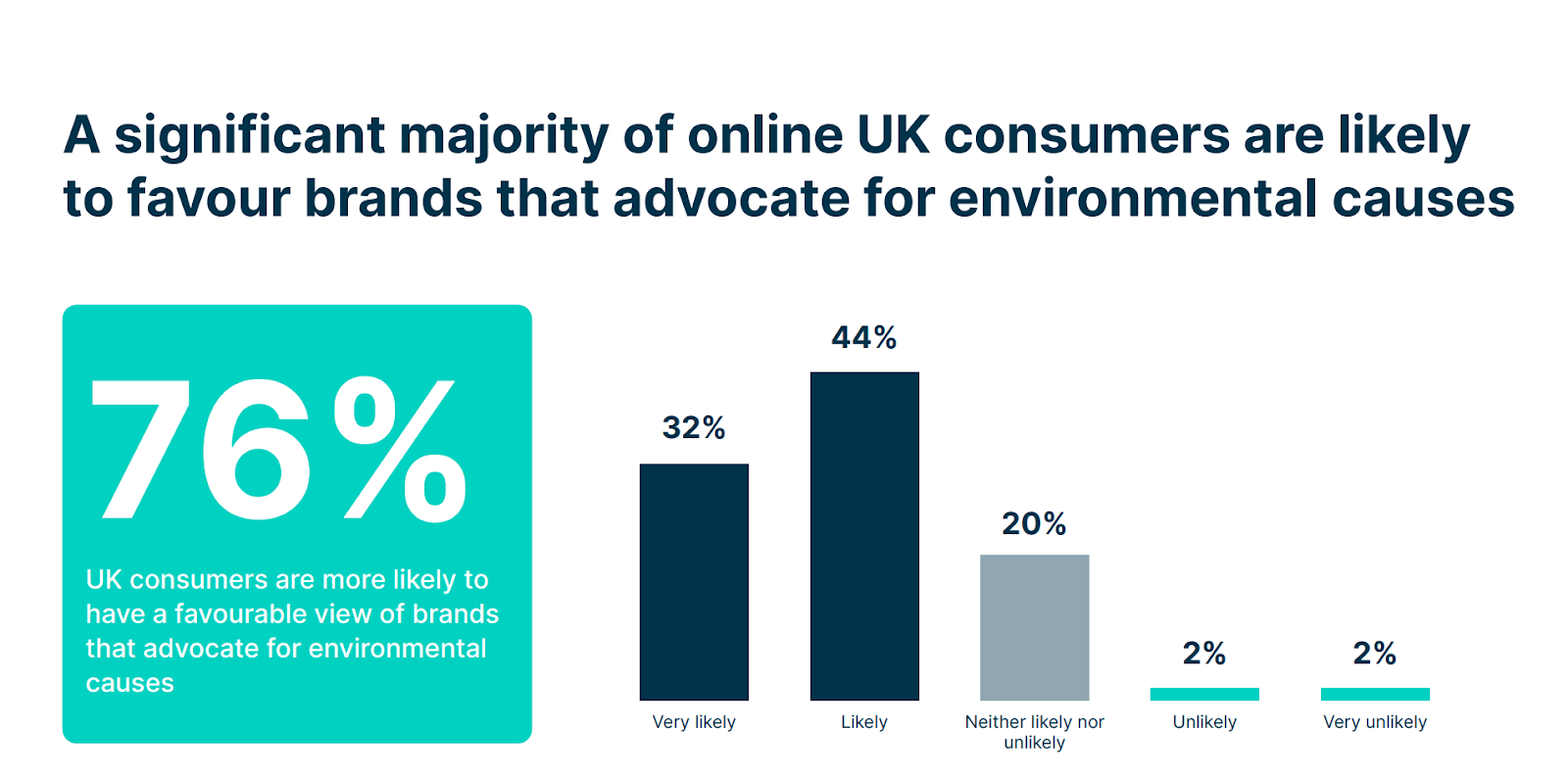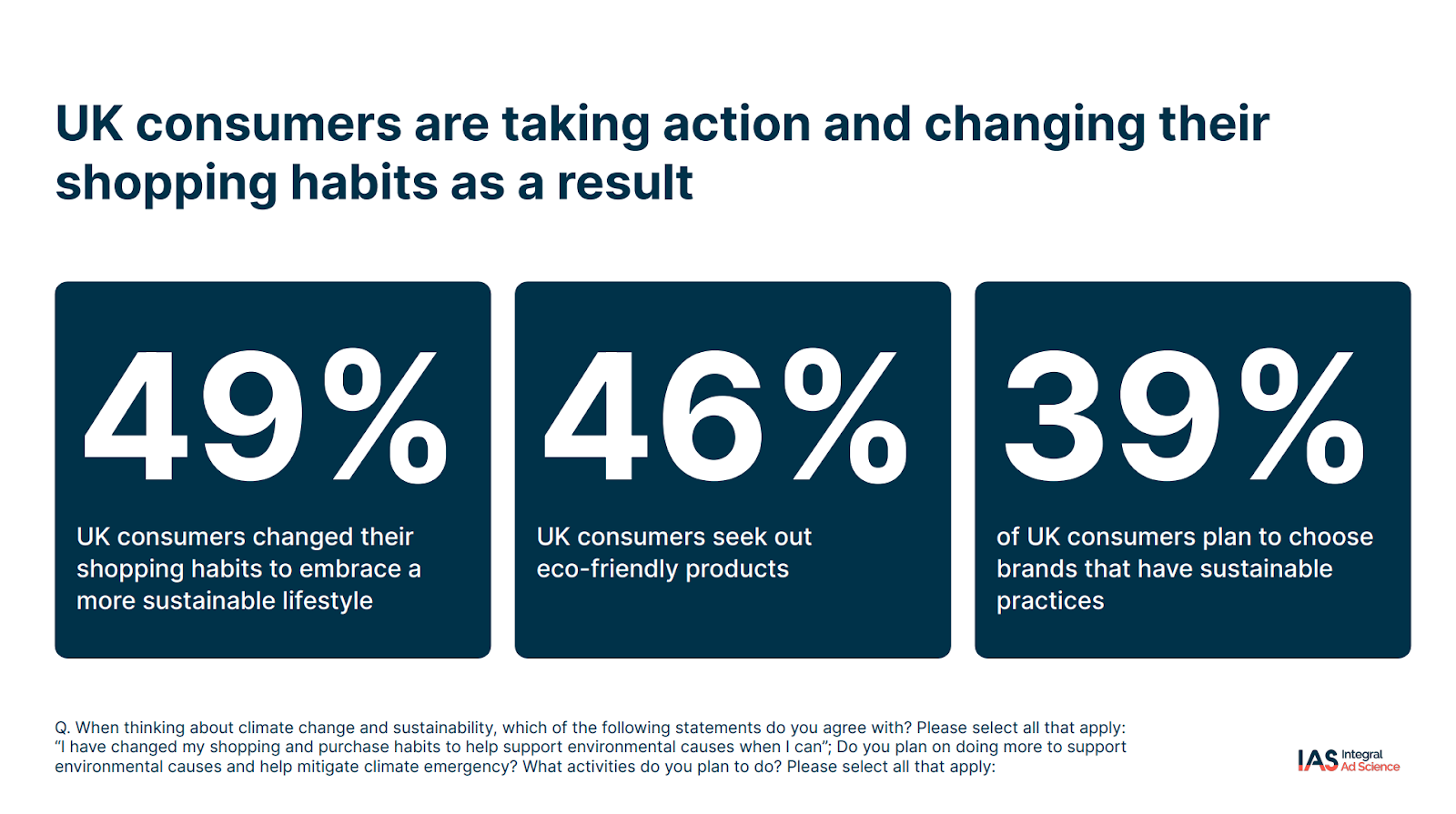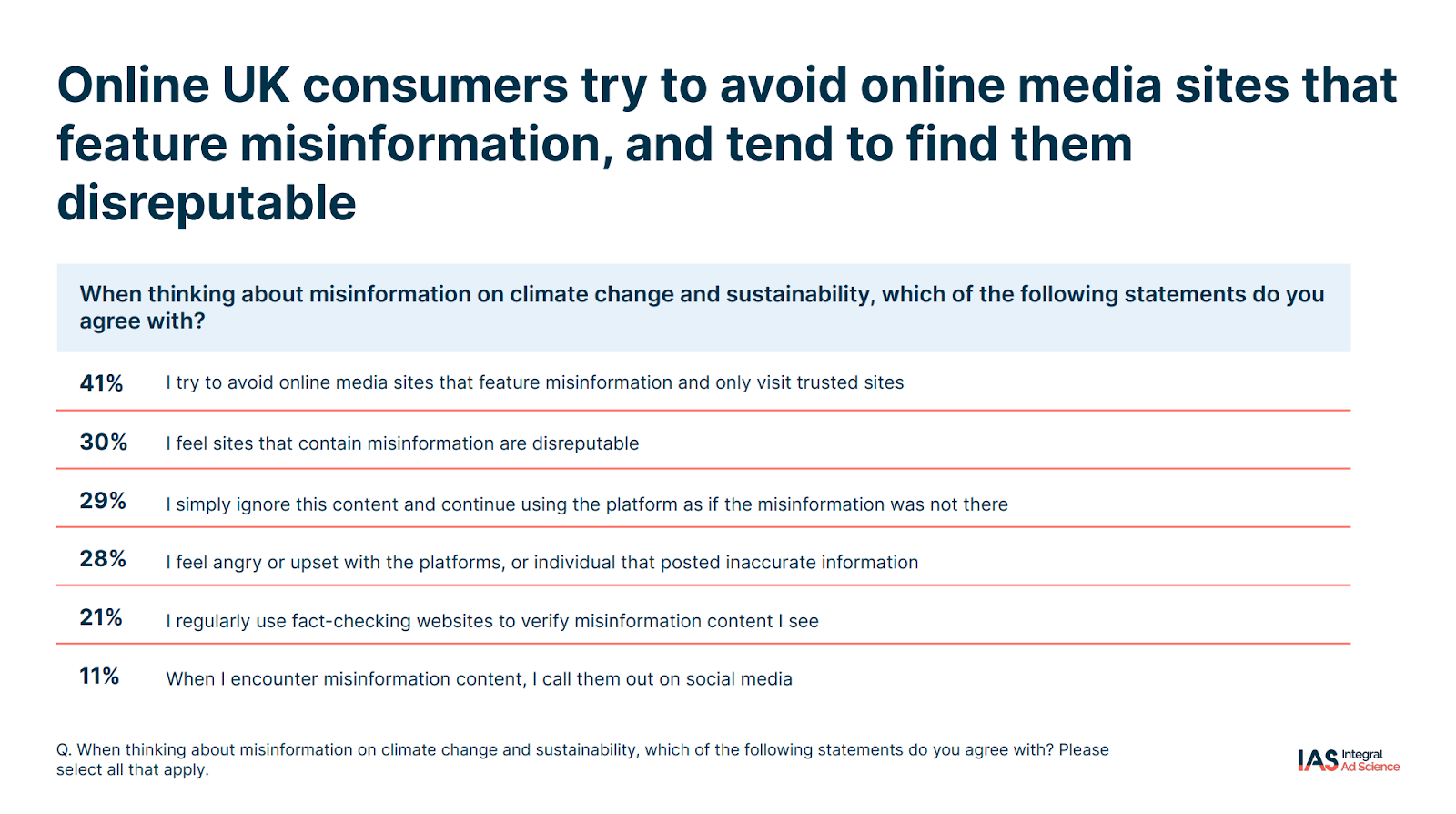Ads placed alongside pro-sustainability contexts increase brand uplift, new IAS research reveals
Research by Integral Ad Science analyses the importance of environmental causes and climate change for UK consumers and if they more likely to favour brands that deliver contextually relevant ads within these environments
London, 19 October 2022: Integral Ad Science (Nasdaq: IAS), a global leader in digital media quality, today released its Sustainability and Advertising study. The report, based on a survey of UK consumers, provides an overview of how important environmental causes and sustainable practices are to UK consumers, and helps understand how this impacts their purchase behaviour, as well as consumer reaction towards contextual ad placements around these causes.
Consumers place a high priority on environmental causes
The study found that sustainability and climate change remains top of mind and is one of the biggest social issues online UK consumers are concerned about right now, after the cost of living crisis.
For the world to change, the majority of UK consumers (94%) recognise that brands and advertisers need to play an active role in advocating for environmental causes, sustainability and ways to combat climate change. In fact, three-quarters (76%) of consumers have a more favourable view of brands that advocate for environmental causes.

Brands benefit most from supporting environmental content
For the study, IAS tested consumer reaction to ads alongside content that was neutral on environmental causes and compared that with reaction to ads alongside content that advocated for environmental causes.
It revealed a standard ad that was placed alongside a positively-laden headline advocating for environmental causes benefited from a +44% boost in favourability than the ad would have had alongside a neutral headline. This was even higher (+51%) when the ad itself included a sustainability message.
Compare that with the boost in favourability that an ad had when advocating for environmental causes alongside a neutral headline (only +29%) and it’s clear context has a bigger impact on consumer perception than the message of the ad itself.
Zero tolerance for climate change misinformation
UK consumers see advertisers as responsible for influencing change and improving sustainability, however, they are also taking action into their own hands in multiple ways. For instance, half of consumers (49%) changed their shopping habits to help support environmental causes and 39% will only choose to purchase from brands that have environmentally sustainable values or practices.

Consumers also see misinformation as a major concern, with 28% angry or upset with social platforms that display misinformation around sustainability. Almost two-thirds (64%) of consumers have encountered climate-related misinformation online, and 41% have taken action to avoid the source of this misinformation. In fact, the Global Disinformation Index (GDI) estimates that advertisers will unwittingly provide £29.4m to 98 climate change disinformation sites, on an annual basis.

Csaba Szabo, Managing Director EMEA, Integral Ad Science (IAS) said:
“Our study shows that sustainability should play an important role in a brand’s advertising strategy. It’s also critical for brands to ensure that their ads don’t appear alongside climate change denialism or other forms of misinformation that could tarnish their reputation with consumers. However, it is not just about avoidance. Consumers are demanding that marketers actively leverage their position as storytellers with a strong and credible message and deliver ads in the most relevant environments, so the industry can collectively enhance consumer trust.”
Recently, IAS announced a global partnership with Good-Loop that will allow advertisers to track the carbon emissions of their digital ad campaigns using IAS and Good-Loop data feeds.
Amy Williams, CEO and founder, Good-Loop said:
“We’re very proud of our partnership with IAS, as it brings carbon emissions transparency within digital advertising on a global scale. The Sustainability and Advertising study clearly demonstrates that sustainability and climate change is a top priority for consumers. It’s powerful to see the impact this issue has on brand favourability — that’s a clear call to action for our industry. The study also highlights how advertisers need to think holistically about how their advertising can effectively address the climate crisis — from contextual placement to ad serving emissions and creative messaging — every piece of the media plan needs to be values-aligned if we are the drive real change, and that’s something IAS and Good-Loop can uniquely help to address.”